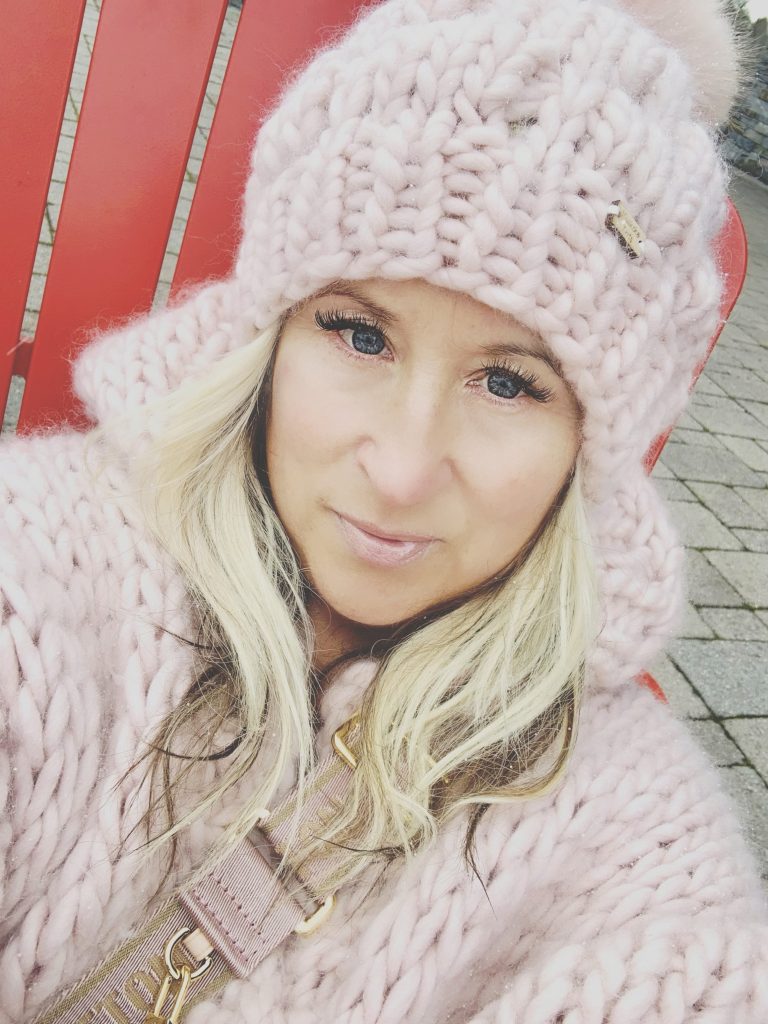Theresa Robinson spent 18 months building up her business and client base only to wake up one day and find her Facebook page, the main hub of her online business, was gone.
Robinson is the business owner and artist behind Muskoka Knits. She launched her business during COVID as a way to make money from home while caring for her daughter. Her business exploded in a way she never expected with over $100,000 in sales and projects lined up through October of this year. She started working 18-hour days making sweaters, toques and other items that were shipped worldwide. With over 3,400 followers, Facebook was her primary business platform until hackers took over her page in December.
“It literally has shut my business down overnight,” Robinson said. “I’ve not had one sale since December 18th. It’s the only way I can sell my product because it’s all custom orders.”
Robinson received an alert to reset her password, but the message didn’t really come from Facebook and gave hackers access to her account. Though she also has an Etsy page and website, her entire customer base was built up through Facebook.
Etsy, and the internet in general, has knitters from all over the world selling sweaters, so her Facebook page was a place where people interested in her particular skills and products could keep up with her work, she said. She struggled for years trying to find a way to work from home, and after putting so many hours into her business, she’s devastated to see everything come to a halt.
“I have no way of generating any further income because it’s all based on my online business [on] Facebook,” Robinson said. “That’s where my thousands of people are. That’s where my orders come from, so my income now is zero.”
Robinson felt sick to her stomach when she found out what had happened to her account. Not only did she lose access to her page, hackers also created posts on child sexual exploitation to trigger Facebook’s community standards and get the page disabled. Because it was connected to her Facebook page, she also lost her Instagram account.
Once her page was disabled and removed, hackers used the payment method from her previous ads to buy nearly $800 of their own sponsored content. Despite daily efforts, she couldn’t get in touch with anyone from Facebook’s support team.
“Facebook does not run their business side of Facebook any different than personal,” she said. “They don’t have any technical support. When you’re literally disabled from your account, there’s no way of contacting anybody.”
Robinson was able to dispute the charges with PayPal and get her money back, but her page is still gone. Since her messages and posts are inaccessible, she spent days reaching out to customers through text and cards in the mail, providing order updates and ensuring customers that she was still working on their products.
She’s tried to create a new account and business page multiple times and gotten booted off the platform. Her third attempt at remaking her page has just under 200 followers, so if she’s not able to get her original page back, she’s hoping that at least the new page won’t get taken down.
Muskoka411 News reached out to Facebook for their comments regarding the issue on Jan. 24. A spokesperson from the corporate communications team at Meta, Facebook’s parent company, said on Jan. 25 that their team is investigating the removal of Muskoka Knit’s page. The representative would not answer questions regarding how common these issues are or how users can get in direct contact with the support team, instead offering an automated form.
“The best course of action if someone suspects their accounts have been hacked is to visit facebook.com/hacked and follow the steps outlined there,” said the representative in an email to Muskoka411. “We encourage people to turn on two factor authentication to prevent similar hacks from happening, and to visit our Help Center for tips and best practices to keep their accounts secure.”
Along with setting up two-step verification, Robinson encourages other business owners on Facebook to ensure they have their photos and other information saved elsewhere. Though the future of her original page remains unclear, she wants her customers to know that she’s not going anywhere.
“I just want them to know I’m still here,” Robinson said. “I haven’t taken off with people’s money. I’m still a local business. I can’t have a Facebook platform right now, but I’m still here.”
